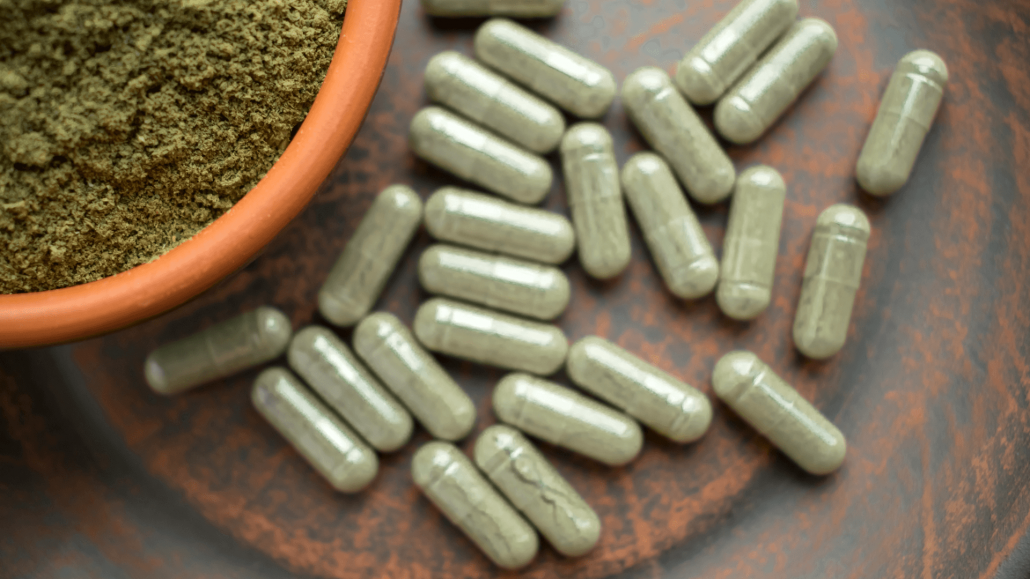September 9, 2025 PCI Centers
What Is Kratom and Why Is It Rising in Use?
Kratom (Mitragyna speciosa) is a plant native to Southeast Asia that has stimulant-like effects at low doses and opioid-like effects at higher doses. In recent years, kratom products have quietly made their way into Ventura County, often sold in smoke shops, convenience stores, and gas stations under labels such as “mitragynine.” While marketed as “natural” and “safe,” kratom use is far from risk-free. Locally, Ventura County has reported 46 fatal overdoses since 2018 where mitragynine was present, with six deaths in 2024 alone. These statistics underscore the very real dangers associated with kratom use.
The Hidden Risks and Side Effects of Kratom
Many users turn to kratom for relief from anxiety, pain, or opioid withdrawal. However, research shows kratom can cause:
- Addiction and dependence – users often develop tolerance and withdrawal symptoms similar to opioids.
- Serious health risks – including liver injury, seizures, and, in some cases, overdose when combined with other substances.
- Unregulated products – many kratom powders, capsules, or drinks are contaminated or mislabeled, increasing the danger.
In Ventura County, officials are now considering stricter local regulations, following the lead of cities like San Diego, Oceanside, and Newport Beach, which have already banned sales.
Warnings to Parents about Kratom Use
Parents may not recognize kratom products at first glance. They can appear as energy shots, teas, or herbal capsules. Key warning signs your teen or young adult might be using kratom include:
- Sudden changes in mood or energy levels.
- Unexplained financial spending at smoke shops or gas stations.
- Withdrawal symptoms like irritability, sweating, or nausea when not using.
Open conversations and early awareness are crucial. Just because something is sold legally in stores does not mean it is safe.
Treating Kratom Addiction at PCI Centers
At PCI Centers, we approach kratom addiction with the same evidence-based care we use for other substance use disorders. Treatment often involves:
- Comprehensive assessment – understanding the individual’s use patterns, co-occurring mental health issues, and risks.
- Therapeutic support and relapse prevention – to address underlying causes.
- Motivational interviewing – helping clients develop healthier coping strategies.
- Family education – equipping loved ones with tools to support recovery.
Our clinicians emphasize that early intervention matters. Kratom may feel like a “legal alternative,” but its addictive potential is real. We advise: Don’t ignore subtle warning signs. Avoid self-treating pain, anxiety, or withdrawal with unregulated substances. Seek professional guidance if you or someone you love is struggling.
Getting Support for Addiction in Ventura County
If you’re concerned about kratom use—for yourself, a friend, or your child—PCI Centers is here to help. We offer confidential assessments, tailored treatment programs, and ongoing support in Ventura County and beyond. Speak with a clinician today.
References
Food and Drug Administration. (2025, July 29). FDA and Kratom.
Food and Drug Administration. (2025, July 29). FDA takes steps to restrict 7-OH opioid products threatening American consumers.
Food and Drug Administration. (2025, July 29). Products containing 7-OH can cause serious harm.
Food and Drug Administration. (2025, July 15). FDA issues warning letters to firms marketing products containing 7-hydroxymitragynine.
Food and Drug Administration. (2024, July 26). FDA warns consumers not to use OPMS Black Liquid Kratom.
National Institute on Drug Abuse. (2022, March 25). Kratom.
Smith, K. E., Panlilio, L. V., Feldman, J. D., Grundmann, O., Dunn, K. E., McCurdy, C. R., Garcia-Romeu, A., & Epstein, D. H. (2024). Ecological momentary assessment of self-reported kratom use, effects, and motivations among U.S. adults. JAMA Network Open.
Los Angeles Times. (2025, August 20). Kratom bans: What to know.
Los Angeles Times. (2025, July 25). Kratom use on the rise [Opinion]. Los Angeles Times, Daily Pilot (Orange County).
Los Angeles Times. (2024, April 29). Kratom products have gone unregulated in California, alarming both fans and critics.








